Mouth ulcers, also known as canker sores, are a common oral health issue that can cause discomfort and irritation. While they are usually harmless and tend to heal on their own, they can be quite painful. In this blog post, we will delve into what mouth ulcers are, their causes, practical tips for managing and preventing them, and some home remedies that can help soothe the pain.
- What Are Mouth Ulcers?
Mouth ulcers are small, painful sores that develop inside the mouth. They can appear on the inner cheeks, lips, tongue, gums, and the roof of the mouth. These ulcers are usually round or oval in shape, with a white or yellowish center and a red border.
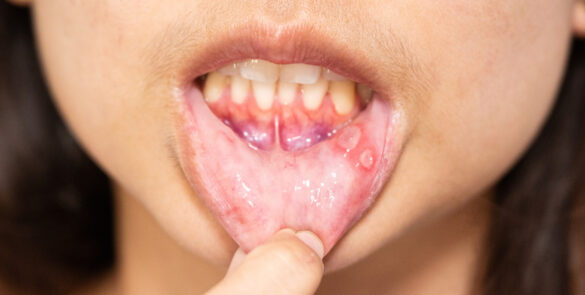
- Types of Mouth Ulcers
There are several types of mouth ulcers, but the most common ones include:
- Minor Aphthous Ulcers: These are the most common type of mouth ulcers. They are small, shallow, and typically heal within one to two weeks.
- Major Aphthous Ulcers: These are larger and deeper ulcers that can take several weeks to heal.
- Herpetiform Ulcers: These ulcers are small and occur in clusters. Despite their name, they are not related to the herpes virus.
- What Causes Mouth Ulcers?
The exact cause of mouth ulcers can vary from person to person, but some common triggers and factors include:
- Minor Trauma: Accidental biting of the cheek or tongue, or using a toothbrush with hard bristles, can injure the delicate tissues inside the mouth and lead to ulcers.
- Spicy or Acidic Foods: Consuming foods and beverages that are spicy, acidic, or rough can irritate the mouth’s lining, contributing to ulcer formation.
- Stress: Emotional stress can weaken the immune system, making the mouth more susceptible to ulcers.
- Nutritional Deficiencies: A lack of certain vitamins and minerals, such as vitamin B12, iron, and folic acid, can increase the risk of mouth ulcers.
- Dental Appliances: Braces, dentures, or other dental appliances may rub against the soft tissues of the mouth, causing irritation and ulcers.
- Hormonal Changes: Some individuals may develop mouth ulcers during hormonal changes, such as menstruation.
- Constipation/Indigestion: People suffering from stomach and intestinal disease usually develop mouth ulcers.
- Body heat: According to Ayurvedic experts, due body heat (pitt), mouth ulcers and heat boils occur.
- Managing and Treating Mouth Ulcers
While mouth ulcers typically heal on their own, there are steps you can take to manage the pain and speed up the healing process:
- Topical Analgesics: Over-the-counter topical gels or ointments containing ingredients like benzocaine can provide temporary pain relief and create a protective barrier over the ulcer.
- Rinsing with Saltwater: Gargling with warm saltwater can help reduce inflammation and keep the ulcer clean, promoting faster healing.
- Avoid Irritants: Avoid spicy, acidic, and rough-textured foods that can exacerbate the pain and irritation.
- Good Oral Hygiene: Maintain good oral hygiene by brushing and flossing gently to avoid injuring the ulcers.
- Home Remedies:
– Honey: Applying a small amount of honey directly to the ulcer can help soothe pain and promote healing.
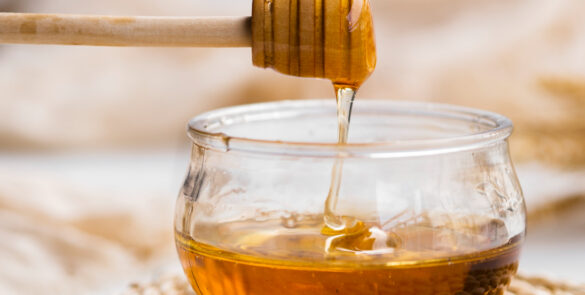
– Coconut Oil: Coconut oil has anti-inflammatory and antimicrobial properties. Applying it to the ulcer can reduce pain and speed up healing.
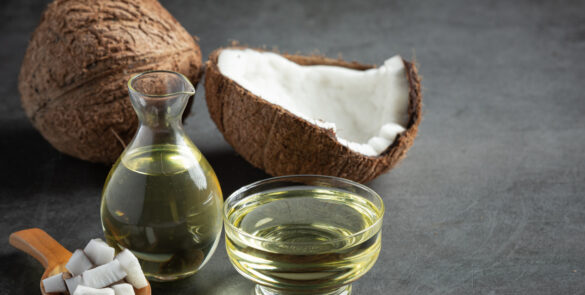
– Aloe Vera Gel: Aloe vera has cooling and anti-inflammatory properties. Apply a small amount of aloe vera gel to the ulcer for relief.
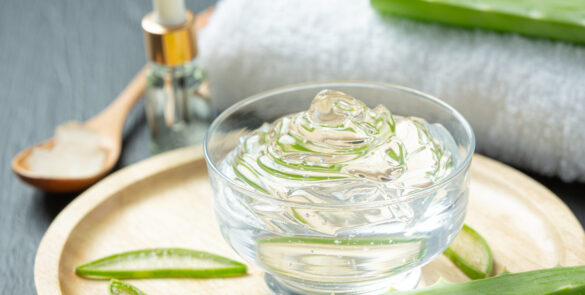
–Aloe Vera juice: Having 30ml of Aloe Vera juice on empty stomach for few days can help in faster healing of ulcer
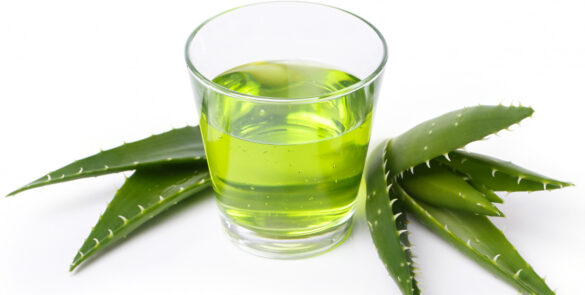
– Baking Soda Paste: Mix baking soda with a little water to create a paste and apply it to the ulcer. This can help neutralize acidity and reduce pain.
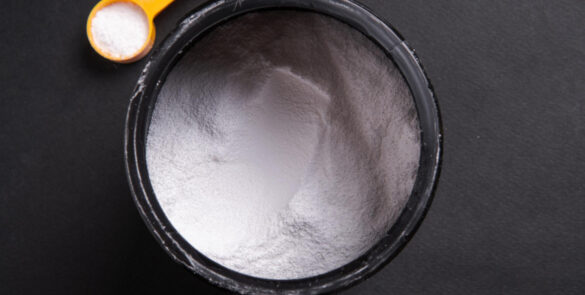
–Having buttermilk with few mint leaves cools the body and has soothing effect on mouth ulcers
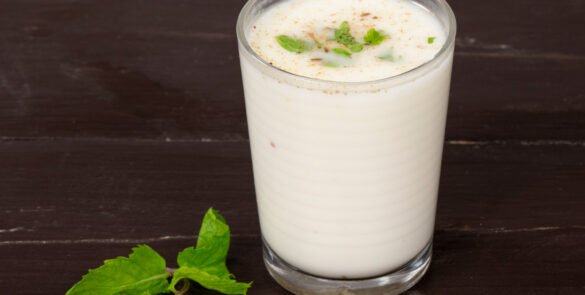
- Nutritional Supplements: Multivitamin capsules or specifically folate, zinc or vit b 12 supplements can help

- Managing digestion issues could resolve the mouth ulcers caused due to it.

- Preventing Mouth Ulcers
Preventing mouth ulcers is not always possible, but you can take certain precautions to reduce your risk:
- Maintain Good Oral Hygiene: Brush and floss regularly to prevent injuries from sharp or uneven teeth.
- Use a Soft Toothbrush: Choose a soft-bristle toothbrush to minimize the risk of injuring your mouth.
- Avoid Trigger Foods: Identify and avoid foods and beverages that trigger your ulcers, such as spicy foods or acidic fruits.
- Manage Stress: Find effective stress management techniques to reduce emotional stress, which can weaken the immune system.
- Nutritious Diet: Eat a balanced diet rich in vitamins and minerals, especially B vitamins, iron, and folic acid.
- Regular Dental Check-ups: Visit your dentist regularly for check-ups to ensure your oral health is in good shape.
- When to Seek Professional Help?
While most mouth ulcers heal on their own without complications, there are situations where you should seek professional dental or medical care:
- Persistent Ulcers: If an ulcer does not heal within two weeks or keeps coming back, consult your dentist or healthcare provider.
- Severe Pain: If the pain is severe and not manageable with over-the-counter remedies, seek professional help.
- Multiple Ulcers: If you develop multiple ulcers simultaneously, it may be a sign of an underlying medical condition that requires attention.
- High Fever or Swelling: If an ulcer is accompanied by a high fever, swelling, or difficulty in swallowing, consult a healthcare provider.
Conclusion
Mouth ulcers can be a painful and bothersome oral health issue, but with proper care, attention, and some home remedies, you can manage and alleviate their discomfort. Remember to maintain good oral hygiene, avoid irritants, and seek professional help when necessary. If you have persistent or severe mouth ulcers, don’t hesitate to reach out to our dental practice for expert guidance and care. Your oral health is our priority, and we are here to help you achieve a comfortable and pain-free smile.







